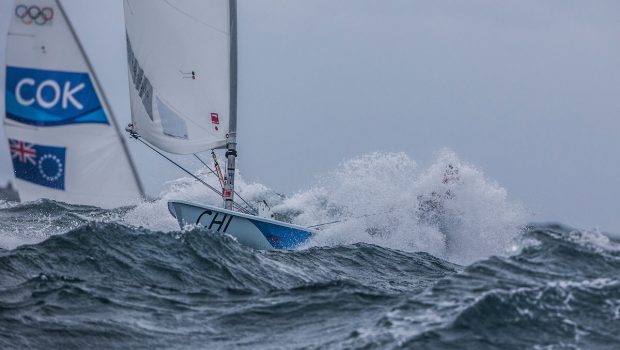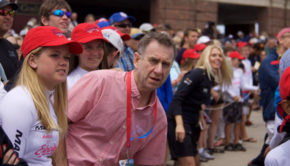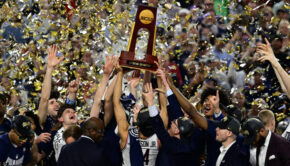Looking back on the Rio Olympics
Published on August 6th, 2020
Four years ago, Scuttlebutt editor Craig Leweck was in Brazil to report on the Rio 2016 Olympics. With the Tokyo 2020 Games postponed until 2021, we keep that Olympic Flame alive through Leweck’s observations from the Carioca nation… here was his fourth report:
Rio de Janeiro, Brazil (August 9, 2016) – Competing in the Olympic Games offers that fairy tale moment that’s been in the dreams of every athlete. So many have invested so much for the right to be the best in their country and the privilege to represent its flag. It is heady stuff… to the point it can explode your head. I really can’t imagine another time in a sailor’s life when there is such great opportunity to fail.
As sailors, all we know is what we have ever known. Very few of them are notable outside their circles. While the accomplishments might be remarkable, they tend to occur in general obscurity. Can you imagine the prospect of competing when you are equal parts athlete and celebrity? Sure, it is how athletes in many other sports operate, but for them it’s a slow build. For sailors qualifying for the Olympics, it can be a sudden shift.
If the national teams are doing their job, all forms of media are now interrupting a sailor’s routine. I am sure much of it is fun as the attention is not normally the norm. Their reality is the sailing press, but waking up early for hair and makeup before a network broadcast is another matter. All the attention can confuse the process. “Have I already won?” Ah… no!
But the noise is deafening. Prior to the Games, it is the full focus of all media. So many stories, particularly this time. Not all the headlines for Rio have been ideal. Every Games has challenges, and Rio is no exception. Nothing attracts an audience like drama and the media aggressively jumped on the opportunity. When the mission of each sailor is to prepare for and focus on the competition, the distractions become a significant foe.
Then there is the topic of control. When qualifying for the Games, the amount of control by each sailor is significant. After qualifying, keeping control becomes the challenge. Routines that were critical for success are now disrupted. Athlete decisions that once built confidence get made by others. Helping the national team now comes in conflict with helping each sailor’s team. Maintaining one’s “program” can get forgotten.
The infrequency of the Games doesn’t help. Screw it up and it’s a long wait for another chance, one that may not come as younger and hungrier athletes threaten your position. There is a long history of sailors making strategic changes in the build-up, deviating from what got them there, only to see these changes be the cause of their demise. A lot of favorites fail at the Games.
Before the Games, it all becomes quite a tyrannical tonic. The pressure of the moment is very difficult to train for. This is not the World Championship. Not even close, and every World Champion would gladly trade their trophy to stand on the podium. To fulfill the Creed is hard: “The essential thing is not to have conquered but to have fought well.”
Indeed, but like many slogans, words are easy. Executing is the hard part, and the Olympic Games is the hardest moment to execute. It is what makes the Games special, and is what gives meaning to those that can proudly call themselves Olympians.
Event details – Results – Photos
Racing was staggered among the 10 events from August 8 to 19.









 We’ll keep your information safe.
We’ll keep your information safe.